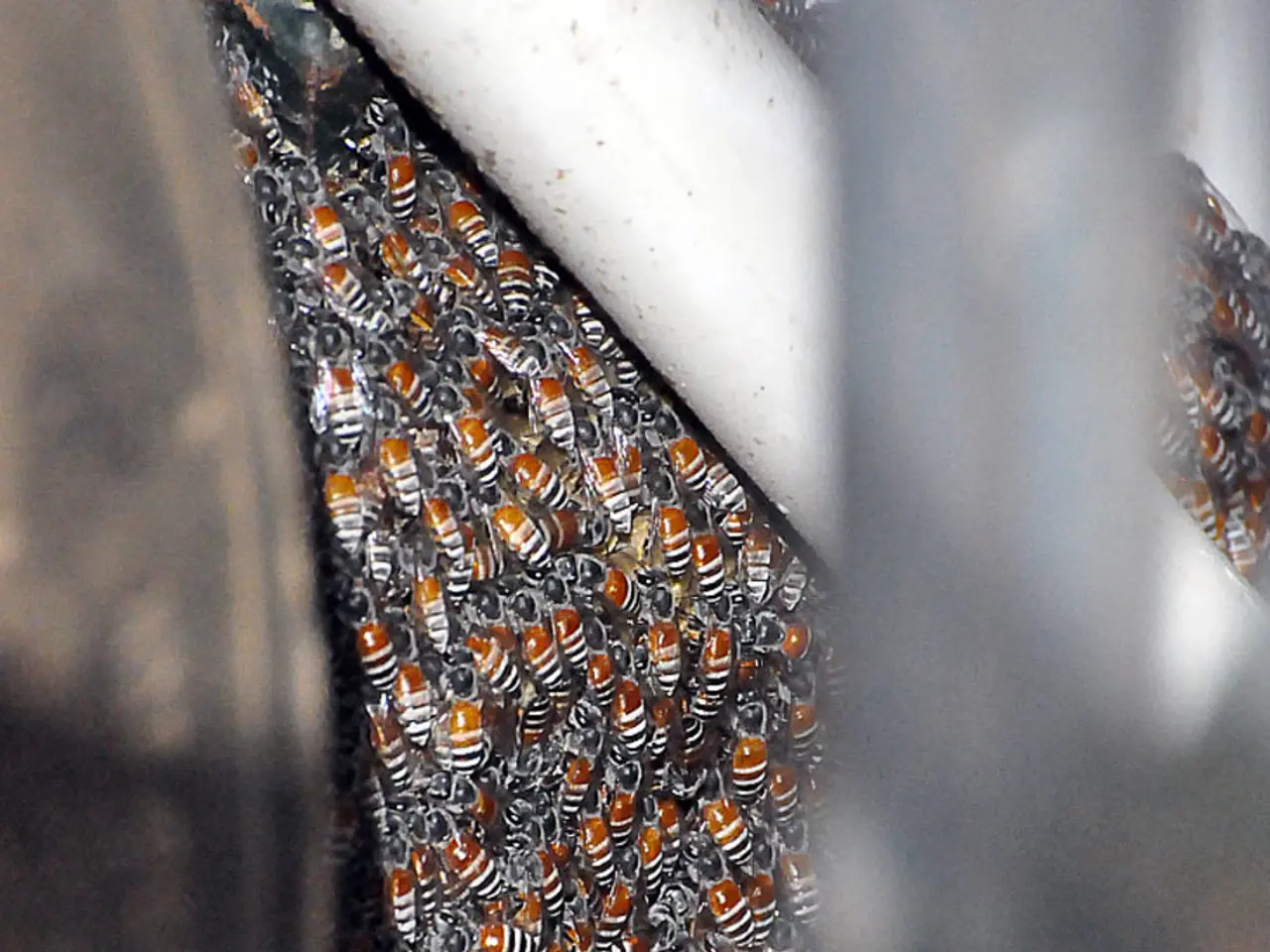Growing Trend: The Blossoming Hobby of Home Beekeeping
In Melbourne, Australia, an intriguing trend is taking root - urban beekeeping. This movement, part of a global phenomenon, sees cities embracing beehives in gardens and shared spaces, with the number of urban beehives growing in cities worldwide.
One of the most notable aspects of this trend is its growth. In Victoria alone, the number of registered beekeepers has increased dramatically from 1630 to 9155 in the last seven years. This surge is evident in the growing number of urban beehives at eateries like Anada in Fitzroy and Park Street Dining in Carlton North, as well as on the rooftops of hotels such as the Pullman in Albert Park and the Sebel in Flinders Lane.
The benefits of urban beekeeping are manifold. Ecologically, honeybees play a crucial role in pollinating native plants and urban agriculture, contributing to biodiversity and the health of urban ecosystems. They are the unsung heroes that help sustain urban greenery and food production.
There is also a cultural and educational benefit. Urban beekeeping raises awareness about the importance of pollinators and environmental stewardship among city residents. It can even promote local honey production, strengthening community engagement and local economies.
However, urban beekeeping is not without its challenges. Experts caution against an excessive focus on honeybees, which could overlook the needs of native pollinators and potentially disrupt local biodiversity. Honeybees can compete with native bee species for resources, leading to ecological imbalances.
Practical challenges include managing bee health in urban environments, dealing with potential conflicts with residents wary of stings, and ensuring hive sustainability amidst pollution and habitat fragmentation common in cities. The need to balance rewilding and biodiversity initiatives with urban beekeeping practices is increasingly recognized.
Vanessa Kwiatkowski, co-founder of Rooftop Honey, a Melbourne-based urban beekeeping enterprise, emphasised their aim to help save the honey bee from threats of disease and human habitation. Rooftop Honey places hives on the roof spaces of cafes, restaurants, shopping centres, hotels, retirement and aged-care facilities in Melbourne, with some hives producing up to 32 kilograms of honey in a season.
The world needs bees, as three out of four food crops and 90 percent of wild plants depend on bee pollination. The decline in bee populations, with colony numbers having fallen by an estimated 40 percent in the United States since 2006, and 45 percent in Britain since 2010, due to climate change, habitat loss, intensive farming methods, and pesticides, underscores the urgency of protecting bees and supporting urban beekeeping initiatives.
The urban beekeeping movement in Melbourne is expanding, bringing important benefits to urban ecology and communities. However, it requires careful management to address ecological and social challenges associated with the presence of honeybees in densely populated areas.
Urban beekeeping not only supports the growth of local honey production and ecological health but also fosters awareness about the importance of pollinators and environmental stewardship among city residents. However, careful management is necessary to address ecological challenges, such as ensuring harmony between honeybees and native pollinators, and addressing concerns related to bee health in urban environments.




